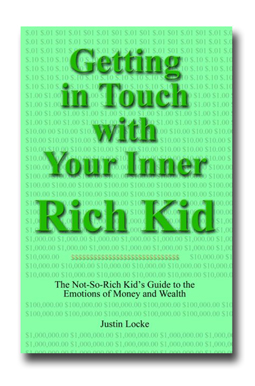As a speaker and coach on the broader aspects of managing people, I spend a fair amount of time in the realm of philosophical contemplation. I’m always trying to find the core fundamental that explains the big picture.
I am not alone in this. Both religious philosophers and theoretical physicists do the exact same thing.
So I don’t have a new idea,* but here is my grand conclusion du jour:
The universe consists solely of positive energy.
Just some examples: the sun has come up every day, without fail, for the last, oh, I don’t know, 4 billion years? Talk about trustworthy. It has never once left us in the lurch.
Outside our own solar system, there is no such thing as a nebula where it’s not safe to walk around at night.
Further, there are no carbon atoms carrying switchblade knives.
So how does this totally positive energy square with all the “bad things” in the world? Simple. What we think of as “negative” energy is simply a twisting, clogging, or limitation of this infinite positive loving creative energy.
It is very easy (and oh so common) to believe in the existence of evil, but I can make a pretty good argument that anything that is “evil” is built out of some perversion of positive energy. To use biblical imagery, even the devil started out as an angel. In other words, even the most negative thing in the world was made out of something positive, as positive energy is the only thing the universe gives us to work with.
There are many people who are highly motivated to emphasize the existence of evil, as human beings are easily manipulated by fear. I’ve tried very hard in my last two books to point out the pathology and flawed reasoning of several manifestations of this misguided thinking.
I am borrowing heavily from the books of Dr. Ervin Seale here, but I agree with his conclusion. There is no evil in the universe. There is only belief in limitation. And the word “belief” is key.
While we know a great deal about how the world and the universe works, there are quite a few questions that remain to be answered. We don’t really know how the universe began, but so far, it has consistently shown itself to be infinite, constantly growing, highly trustworthy, and often just downright beautiful.
As I point out in my most recent book, money is made out of trust, and the more trust there is, the more wealth there is. To achieve a state of “wealth consciousness,” it is essential to have faith and trust in the positive nature of the universe and the people it created. There are many people telling us to mistrust and believe in evil, but if you go far enough upstream from any of life’s deltas of energy turned into matter, you constantly run into this philosophical question of how did the universe begin, and where did we come from? At that level, there is no evidence to prove that evil exists in the universe independently of our own individual belief in limitation. Absent proof either way, we are left with having to choose what we believe the deal to be.
In spite of all the fear mongering of the nightly news and political advertisements, and the generally pessimistic tone of most of the media, endless repetition of this point of view does not, by itself, equal proof or reality. We all have to take a guess here, but I think that ultimately, when you get down to its most basic elements, the universe has consistently demonstrated itself to be a highly trustworthy and totally positive place, and any chain of thought should start with that presumption.
This may sound like a rather grand religious or philosophical discussion, but it has very practical application in the workaday world. Do you see your employees (or perhaps the students in a public school classroom) as inert passive elements who only work for specific reward, who will default to causing trouble if not constantly supervised? Or do you see them all as sources of infinite potential good?
The most important decision we make is whether we believe we live in a friendly or hostile universe. – Albert Einstein
© Justin Locke
*I am much inspired lately by the books by Dr. Ervin Seale. While his books are ostensibly about “religious philosophy,” they’re really more about managing the power of consciousness. Highly recommended.

